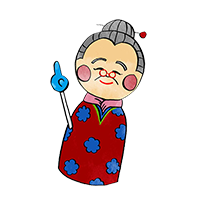

#40
Explaining the reason
Tam, Mi Ya, and Haru-san were relaxing at "Haru-san House" when something unusual happened.
 Skit
Skit Vocabulary
Vocabulary揺れる
yureru
shake
Add to My NotebookAdded to My Notebook
地震
jishin
earthquake
Add to My NotebookAdded to My Notebook
助ける
tasukeru
help
Add to My NotebookAdded to My Notebook
落ち着く
ochitsuku
calm down
Add to My NotebookAdded to My Notebook
大丈夫(な)
daijoobu (na)
OK
Add to My NotebookAdded to My Notebook
ほら
hora
see
Add to My NotebookAdded to My Notebook
もう
moo
already
Add to My NotebookAdded to My Notebook
おさまる
osamaru
settle
Add to My NotebookAdded to My Notebook
初めて
hajimete
first time
Add to My NotebookAdded to My Notebook
びっくりする
bikkuri-suru
be startled
Add to My NotebookAdded to My Notebook
 Key Phrase
Key PhraseExplaining the reason
Add to My NotebookAdded to My Notebook
To explain the reason, use the particle "kara" or "because." In "[sentence 1] kara, [sentence 2]," [sentence 1] expresses the reason. It's more natural to use the plain style for [sentence 1]. The plain style does not use "-desu" or "-masu."
The polite style and the plain style:
Japanese sentences come in two styles. The polite style uses at the end of a sentence "-desu" (in a noun sentence or an adjective sentence) and "-masu" (in a verb sentence). It's appropriate for somewhat formal situations. The plain style, on the other hand, does not use "-desu" or "-masu." It's found in newspaper stories and academic reports, and heard in casual conversation.
Learn more!
 Use It!
Use It! Try It Out!
Try It Out!1Which of these three choices is the correct way to say this sentence in Japanese?
Since it rained, I didn’t go.
it rained | I didn't go
雨だった | 行きませんでした
ame datta | ikimasendeshita

2Say the sentence in Japanese, using the following word(s).
Since [sentence 1], [sentence 2].
【sentence 1】から、【sentence 2】。
【sentence 1】 kara, 【sentence 2】.
it was hot | I became tired
暑かった | 疲れました
atsukatta | tsukaremashita

3Say the sentence in Japanese, using the following word(s).
Since [sentence 1], [sentence 2].
【sentence 1】から、【sentence 2】。
【sentence 1】 kara, 【sentence 2】.
it was delicious | I had another serving
おいしかった | おかわりしました
oishikatta | okawari-shimashita

 Bonus Phrase
Bonus PhraseThis is the TE-form of "tasukeru" or "to help." It's used to call for help in emergencies such as an illness, injury, or accident.
 Kanji
Kanji Culture
Culture
Haru-san’s Bagful of Advice
When an Earthquake Occurs
If you’re in a quake-proof building when a quake hits, don't go outside. Instead, find a safe spot inside. If the swaying is too strong, wait until the shaking stops and then carefully make your way out. Be sure to protect your head whether you’re indoors or outdoors. Hold a cushion, a book, or a bag slightly over your head. Protecting yourself under a table can also be effective. Grab the upper parts of the table's legs.


Be on the alert for aftershocks as well. If you’re near the coast, head for higher ground as soon as possible because a tsunami might hit.
 Trip tip
Trip tip